Photographs: Mansi Thapliyal/Reuters Sumeet Chatterjee in Mumbai
Indian tax officials have opened up a new front in their battle to increase revenue collected from companies, targeting manufacturing firms that slash prices below cost in order to sell slow-moving inventory.
Car makers in particular, mostly multinationals, are in the spotlight, several tax officials and industry executives said.
Authorities are investigating whether the local units of General Motors Co., Suzuki Motor Corp, Honda Motor Co, Ford Motor Co and Daimler's Mercedes-Benz sold cars at a loss, thereby paying lower excise duty.
Excise duty is due on almost all goods manufactured in India and is levied on the assessed value - usually the price at which the item is sold.
General Motors and Ford said they were cooperating with the tax authorities. Mercedes-Benz and the Indian subsidiaries of Honda and Suzuki declined to comment.
...
How tax sleuths are targeting car makers
Image: Cars made by South Korea's biggest automakers Hyundai Motor Co are seen at a ship yard.Photographs: Lee Jae-Won/Reuters
While no tax demand has been made yet against any of the car companies as part of the latest enforcement push, the probe is likely soon to be widened to sectors including makers of consumer goods and computers, four tax officials said.
The crackdown follows a spate of high-profile tax enforcement actions against global companies in India including Royal Dutch Shell Plc, Vodafone Group Plc and Nokia Oyj that has dented corporate sentiment.
India is scrambling to raise revenue to close a budget gap and avoid becoming the first of the so-called "BRIC" big emerging economies to have its credit rating cut to junk.
India's position is based on a Supreme Court ruling last year in favour of the tax office, which sought higher taxes on cars sold by Italy's Fiat more than a decade earlier.
...
How tax sleuths are targeting car makers
Image: A man holds a slip of paper with the queue number as he waits to speak with an official inside the Income Tax office in New Delhi.Photographs: Mansi Thapliyal/Reuters
International Practice
Tax consultants say India's stance that tax should be levied at the "normal" value even if a manufacturer sells at a loss goes against international practice, under which excise taxes are levied on the transaction value.
Car industry officials worry that it is a potentially costly distraction for an embattled auto sector and will do further damage to the country's image as a place to do business.
"These are things that create a lot of confusion in the minds of manufacturers and we are looked at in a very negative manner because most of these companies are international," said Sugato Sen, deputy director general of the Society of Indian Automobile Manufacturers (SIAM).
Tax department officials, who declined to be identified because they were not authorised to speak to the media about ongoing investigations, said India was being unfairly deprived of revenue when manufacturers sold their goods at a loss.
...
How tax sleuths are targeting car makers
Image: A Shell logo is seen at a petrol station.Photographs: Luke MacGregor/Reuters
"Whatever price you want to sell, ...
How tax sleuths are targeting car makers
Image: An employee talks on mobile phone inside a Vodafone store.Photographs: Jayanta Dey/Reuters
Vodafone is contesting two transfer pricing cases, but said earlier this month it was hopeful of reaching a solution over a separate $2 billion tax dispute related to its 2007 acquisition of an Indian mobile company.
Nokia said last month it would continue to fight a $380 million claim for unpaid taxes.
Supreme Court Ruling
The Supreme Court in August ruled in favour of the tax department, which had claimed that the local unit of Fiat sold cars at a price much lower than the cost of production, which was not the "normal price" for levying excise duty.
The ruling makes Fiat liable for the difference between the excise duty it actually paid and the amount it would have paid had the cars been sold at what the tax authorities assess to be the "normal price" -- the production cost plus notional profit.
A Fiat spokesman in Turin declined to comment on the court verdict.
...
How tax sleuths are targeting car makers
Image: Newly produced Toyota cars are seen parked at a port.Photographs: Yuriko Nakao/Reuters
"The department is proceeding against many companies," said Rajeev Dimri, head of the indirect tax practice at BMR Advisors, referring to the excise department investigations into manufacturers selling at a loss. "This issue is not unique to auto companies. This could apply to any manufacturing company.
"Whether all the investigations will result in (higher tax) demands is a different matter, but companies reporting losses will surely face investigations."
A senior official at a foreign-owned car maker in India, who declined to be identified, said: "We are observing the situation very closely, and if it does not move well in our direction it is certainly a worry."
India's car industry is already in the grip of a severe slump, with sales declining for the first time in a decade in the financial year to March. Big manufacturers have invested billions of dollars in India, but most are losing money.
...
How tax sleuths are targeting car makers
Image: Engineers work on a car body at Tata Motors's Pune plant.Photographs: Punit Paranjpe/Reuters
Lengthy Litigation
It is global practice for car makers to sell some models at a loss to win market share or clear inventory. Manufacturers typically pay excise duty on the transaction cost. India insists the excise tax valuation should reflect the "normal" market value irrespective of the actual sale price.
"Vehicles are not selling so what does one do? People will have to somehow liquidate the stock," said Sen, whose organisation has shared its concerns with the government.
According to some consultants, the tax demands arising from such cases could run into millions of dollars. Besides the potential cost, car makers say the probe is a nuisance and might force them to disclose sensitive competitive information.
Haggling over what is the "normal" valuation for different car models could result in lengthy litigation, Sen said.
The tax department has also sought data from local auto companies such as Tata Motors and Mahindra & Mahindra and is in the process of examining whether the companies need to pay higher excise duty, tax officials said.
...
How tax sleuths are targeting car makers
Image: German car manufacturer Daimler's characteristic Mercedes-Benz star is seen outside a Mercedes dealership.Photographs: Kai Pfaffenbach/Reuters
Mahindra & Mahindra said it had submitted manufacturing cost data for various models, and had not yet received a tax demand notice. Tata Motors said the tax department's initiative affects the "fundamental fabric of excise taxation".
P. Balendran, vice president of General Motors India, said authorities had sought "certain details" that were being submitted by the company. Mercedes-Benz India said: "We would not like to comment on the internal tax issues particularly which are sub-judice", or subject to legal process.
Asked whether the excise wing of the tax department had sought any production data or sent a notice seeking additional excise duty, Ford's India unit said: "We are working with the relevant officials to support as necessary."
Maruti Suzuki, controlled by Japan's Suzuki Motor, and Honda Motor declined to comment.
(Additional reporting by Henry Foy in Mumbai and Jennifer Clark in Turin)

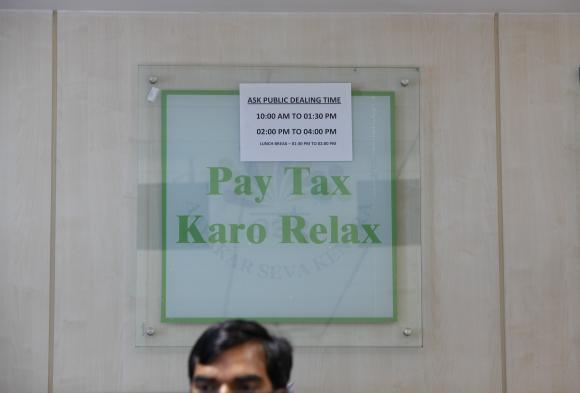
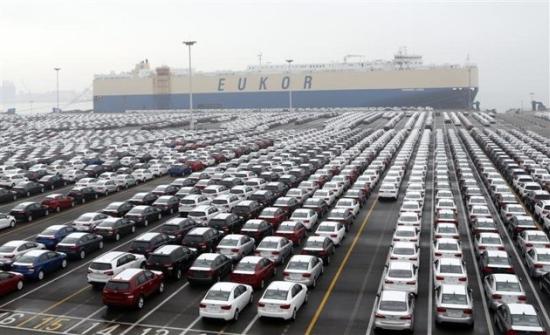
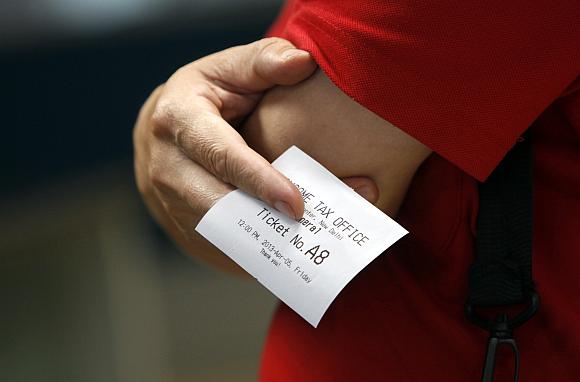


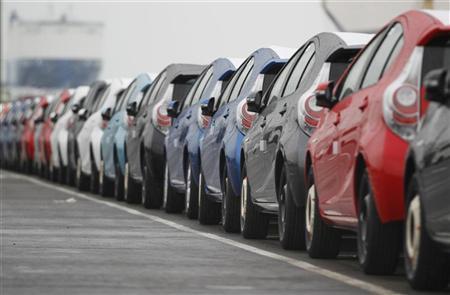
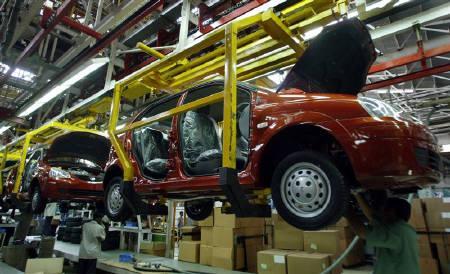
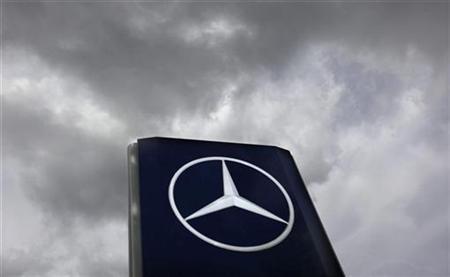

article